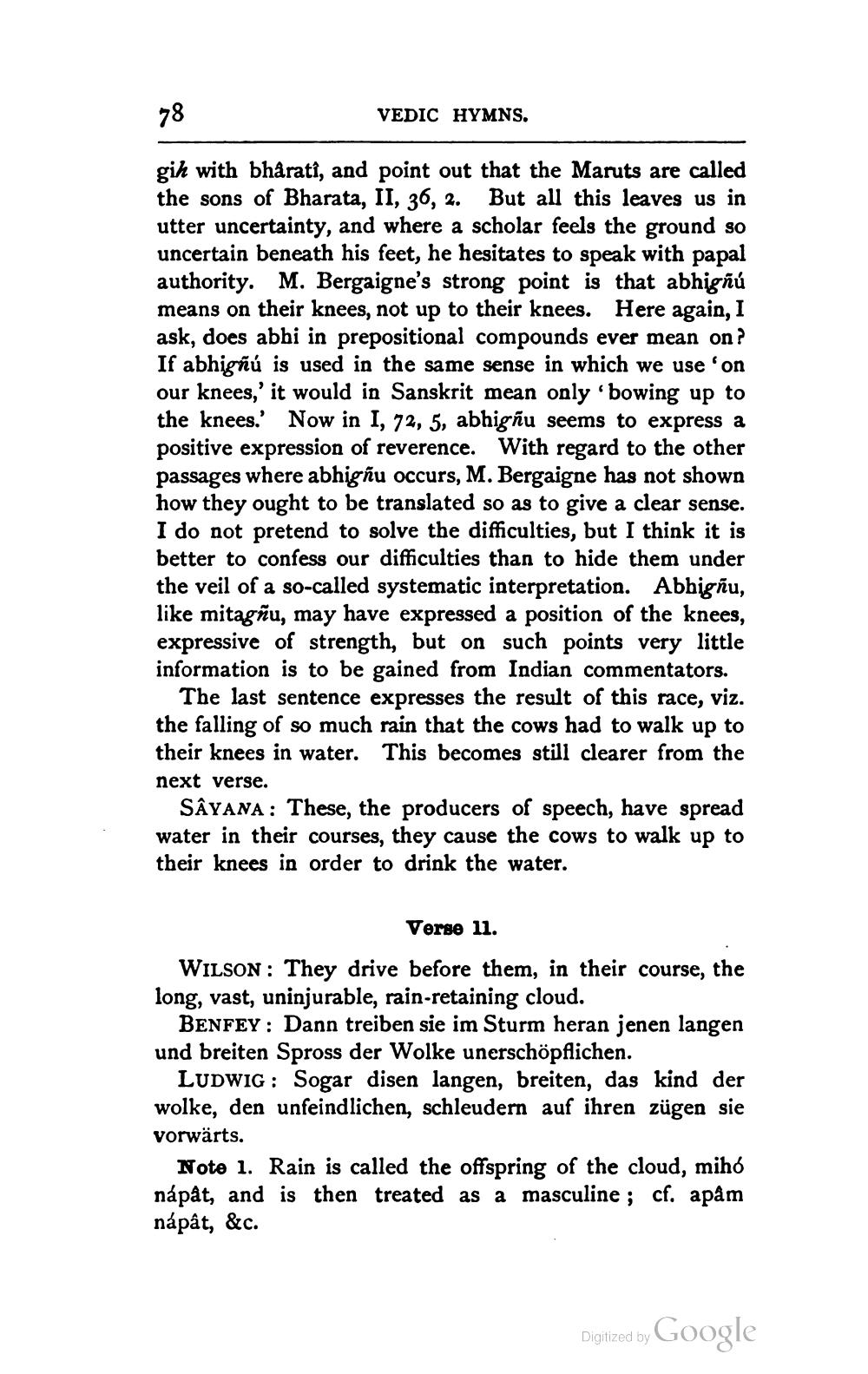________________
VEDIC HYMNS.
gih with bhårati, and point out that the Maruts are called the sons of Bharata, II, 36, 2. But all this leaves us in utter uncertainty, and where a scholar feels the ground so uncertain beneath his feet, he hesitates to speak with papal authority. M. Bergaigne's strong point is that abhigñú means on their knees, not up to their knees. Here again, I ask, does abhi in prepositional compounds ever mean on? If abhigñú is used in the same sense in which we use 'on our knees,' it would in Sanskrit mean only bowing up to the knees.' Now in I, 72, 5, abhigñu seems to express a positive expression of reverence. With regard to the other passages where abhigñu occurs, M. Bergaigne has not shown how they ought to be translated so as to give a clear sense. I do not pretend to solve the difficulties, but I think it is better to confess our difficulties than to hide them under the veil of a so-called systematic interpretation. Abhigñu, like mitagñu, may have expressed a position of the knees, expressive of strength, but on such points very little information is to be gained from Indian commentators.
The last sentence expresses the result of this race, viz. the falling of so much rain that the cows had to walk up to their knees in water. This becomes still clearer from the next verse.
SAYANA: These, the producers of speech, have spread water in their courses, they cause the cows to walk up to their knees in order to drink the water.
Verse 11.
WILSON: They drive before them, in their course, the long, vast, uninjurable, rain-retaining cloud.
BENFEY: Dann treiben sie im Sturm heran jenen langen und breiten Spross der Wolke unerschöpflichen.
LUDWIG : Sogar disen langen, breiten, das kind der wolke, den unfeindlichen, schleudern auf ihren zügen sie vorwärts.
Note 1. Rain is called the offspring of the cloud, miho nápât, and is then treated as a masculine; cf. apám nápât, &c.
Digitized by
Digized by Google




